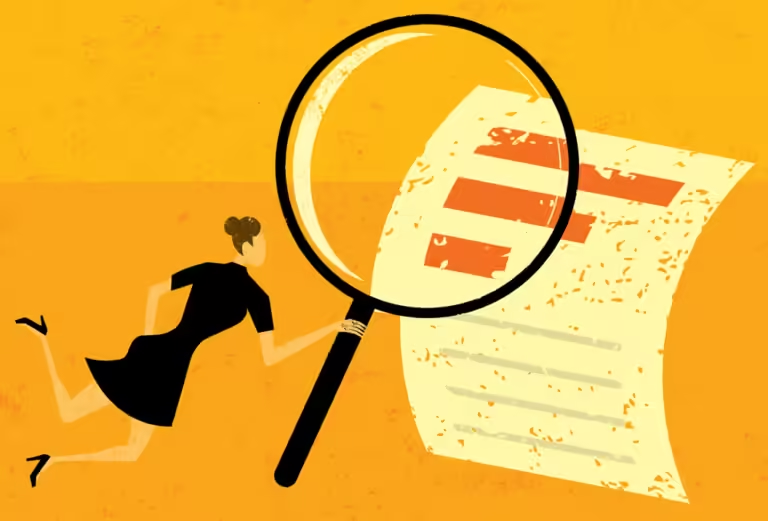Sample for the tone/style we can write in: Friendly Advisor.
- 1200w
- casual
- first-person
- US English
- no-KW
Game developers have turned to creating low-RTP games to increase their profit margins. That’s the reason why many old favorites are no longer the go-to slot games. I’ve also seen many casinos tinker with the RTP of games on their end, basically scamming people out of their money.
Online casino sites seem to be popping up all around us. The proliferation is just insane. And today, staying safe isn’t just about checking if a domain has a valid SSL certificate. Anyone can get that HTTPS lock icon on their website for free in a couple minutes. No, today, we need to be more careful. Sadly, a lot of people I see daily on forums, communities, and even casino platforms are just grossly underinformed. They are highly prone to making bad decisions and having no way out of their ill fortune.
Predatory, shady casino sites that just want to scam you out of your money are growing by the day. Game developers are changing their RTP mechanics as well. And people’s awareness seems to be at an all-time low which, quite frankly, bewilders me to no end.
So, what are we going to do about it? Become more aware of how RTP actually works in a real-world scenario and talk about all the challenges, bad practices, and developments in the iGaming world pertaining to game developers and their games’ RTPs.
How Reliable are RTPs?
The first question we should be asking is how reliable RTPs are, assuming they are not tinkered with and the game developer has the player’s best intentions in mind?
Even though there are many who have just stopped looking at the game RTPs as it becomes tiring, there are others who take it extremely seriously. The fact is RTP is not the most reliable metric to have as your go-to number when it comes to comparing slots.
In an ideal world, every game’s entire game sheet will be available for all players to query to understand stuff like if the max win is x1000, how many spins can it take to hit that, etc. But we don’t live in an ideal world and those who are diligent enough to find and dig into game sheets are quite rare. Still, RTP is one of the many metrics you can use to determine the profitability of a slot. And in many cases, it can be a good metric too.
It’s calculated over the long run so 96% doesn’t mean you will definitely get $96 for every $100 you wager. Instead, you’re likely to get closer to 96% for every $100 wagered the more you play the slot in question. And it’s a theoretical thing, always keep that in mind. It’s based entirely on the game’s mechanics and testing done by the game provider.
Game Providers are Lowering RTPs
It doesn’t help to bind yourself to a particular game provider. For example, there was a time when I’d have sworn by the names of Play ‘n GO, Red Tiger, Pragmatic Play, NoLimit City, IGT, Novomatic, NetEnt, etc. But since then, they have released a ton of low-RTP games and there are many better options today. Relax Gaming, Microgaming, BGaming, Gamzix, Quickspin, etc. are providers that are offering many excellent games today.
But these developers might also get in on the gravy train any time now. A lot of them are already experimenting with variable RTP games.
The most notorious example is Play ‘n GO. The developers have started offering their games in multiple RTPs. Online casinos choose the lower RTP ones. While the game is the same (let’s say Book of Dead, which is quite popular), you are not getting the same RTP as playing the game on a more reputed online casino. This way, casinos can misuse the brand name of a game, ultimately leading to lower payouts for the players.
The game developers are the ones to blame here.
The problem is further aggravated when you consider that Curacao-licensed casinos don’t even need to display the RTPs of their games. This is why you will find many top hits with no RTP information. A Curacao-based online casino might be offering the 88% RTP version of Book of Dead while you’re expecting the standard 96% payouts! If you do the math, this casino will make 3x the money compared to the casino running the 96% version. This 3x profit is directly a 3x loss of the players.
Red Tiger Gaming, Pariplay, StakeLogic, and now even NetEnt is adopting this strategy. The developers that don’t have any variable RTP games at all include Microgaming, Big Time Gaming, Quickspin, Elk Studios, etc.
To anyone still thinking a few percentage points are no big deal, you must understand that the same balance on a lower RTP will be exhausted much, much sooner. Let’s do the math for Book of Dead at 96% and 91% RTP. We’re going to ignore volatility, variable bet sizes, and any streaks here. These are purely average numbers and not guaranteed spins.
- At 96% RTP, the casino has a 4% house edge. If you start with 100x your bet, you’re losing, on average, 4% per spin.
- Your entire balance will be zero when you divide the balance by the loss per spin, so 100/0.04 = 2500 spins.
- At 91%, the same game suddenly has a 9% house edge. This time, the balance will be exhausted in 100/0.09 = 1111 spins. That’s less than half!
So, while I might be having a good time with my 2500 spins (remember, I might not even cross 100 spins due to volatility, but we’re ignoring that for now) and more chances to get big wins, someone playing the same game on a casino that doesn’t advertise that it’s using the 91% RTP version of the game will dry up in half the number of spins.
Online Casinos Lowering RTPs
A lot of players believe that if an online casino has a game from Pragmatic Play, then they are getting an unaltered experience as Pragmatic Play intended. The casino, after all, is just streaming the game as a mediator.
Turns out that’s not the full picture.
Like with everything else on the interwebs, casino games are also web apps or software. They have to be hosted somewhere. Typically, when an online casino buys a subscription (or rents) from a game provider, they are getting all the game files. Now, on their own hosting, they can tinker around a little. They can’t change the core mechanics but there is a little wiggle room, so to speak.
For obvious profit reasons, some shady platforms are notorious for tinkering with the RTP of the most popular games. They lower it by just a little bit and stand to gain a lot of extra cash. Even a 1% drop in RTP on a popular slot is going to make such a casino a lot of money.
So, how do you protect yourself from this? Well, you can’t audit the RTP of a game on your end or anything. All you can do is play on trustworthy platforms that have a squeaky-clean reputation. Thankfully, there are loads of them – all you need to do is do some research.




